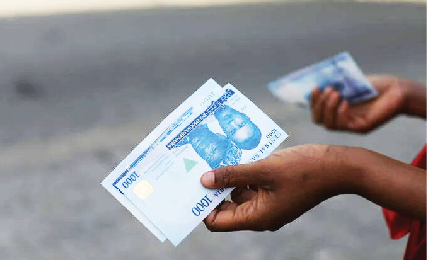The Manufacturers Association of Nigeria(MAN) has said, the redesign of Naira notes, among other factors, have negatively affected the economy and tends to worsen employment in the first quarter.
Manufacturers’ index report showed that employment rate will fall below benchmark points to 48.8 points in the first quarter of 2023.
The association noted that, “the employment condition for the next three months dipped below the benchmark points to 48.8 points.
This is as the Centre for the Promotion of Private Enterprise(CPPE) has commended the ruling of the Supreme Court on the use of the old currency naira notes as legal tender.
The CEO of CPPE, Dr. Muda Yusuf said: “hopefully, the President Mohammadu Buhari, the Central Bank governor and the Attorney General of the federation would comply with this court order in the interest of the rule of law, good order and public interest.
According to MAN, employment decision by manufacturers is so difficult due to the unpredictability and difficulty in macroeconomic movement.
“This is the true opinion of manufacturers. The result is robust and reflects reality – Q1 of every year is usually sluggish and employment decision is hardly completed in the quarter.”
The association also linked this to the continuous rise in inflation, high cost of energy, unabated erosion in naira value and difficulty in sourcing forex as well as the harsh effect of the Russian-Ukrainian war.
Speaking on the development, director general, MAN, Segun Ajayi-Kadir, lamented that, due to the prevailing currency redesign and fuel crises including the acute shortage of forex, manufacturing sector is becoming an endangered profession.
He posited that, the continued scarcity of the new redesigned naira notes is quite worrisome adding that with our growth prospects heading further south, we can ill-afford a downturn in our Gross Domestic Product (GDP).
President of MAN, Francis Meshioye, said manufacturers were facing a very critical time as a result of the persisting scarcity of the new naira notes.
Meshioye noted that, the economic hardship being experienced by Nigerians in accessing the redesigned naira notes was hindering the free flow of goods to end users, resulting in huge pile of stock for manufacturers, which could eventually lead to lay off of staff.
“Industries are grinding to a halt because workers are unable to come to work due to absence of cash. We still operate in a highly informal environment,” he stressed.
MAN report showed that “high cost of energy, insecurity and the lingering Russian-Ukraine War are also among the factors limiting the sector.”
The report also showed that the motorcycle sub-group of the motor vehicle and miscellaneous assembly had been facing domestic difficulty following the ban on motorcycles by various state governments.
Meanwhile, on the Supreme Court ruling, Dr Yusuf said, “We welcome the supreme court ruling as it protects the citizens from a policy which is, by all accounts, disruptive, repressive and draconian. It is also punitive, cruel and insensitive.”
He said, Nigerians deserve an apology from the promoters and proponents of the policy, especially, the arbitrary and uninformed mopping up of cash in the economy, saying, the CBN currency redesign policy inflicted indescribable agony, suffering and distress on majority of Nigerian citizens.
He noted that the trouble was not with the redesign, but the deliberate and unrestrained mopping up of cash in the economy.
According to Yusuf, to date, the CBN had mopped up about N2 trillion cash from the economy, thereby, paralysing the retail sector, crippling the informal economy, stifling the agricultural value chain, immobilising the transportation sector and disrupting the payment system in the economy.
“It is true that the CBN has the right to redesign currency, but it does not have the right to dispossess the citizens of their cash. The choice of the mode of store of value is a fundamental right of citizens. The CBN has no right to impose that choice on citizens,” he said.
He added that, “the claim by the CBN that the economy has too much cash outside the banking system has no basis in economic theory, neither can it be supported by empirical evidence.
“As at December 2022, total money supply was N52 trillion, cash component of money supply was N2.6 trillion, which was just five per cent. Similarly, the country’s Gross Domestic Product (GDP) was N202 trillion, which gives a cash to GDP ratio of 1.3 per cent. These ratios are some of the lowest around the world which shows that the Nigerian economy is not really a cash-dominant economy.
He pointed out the contention that the arbitrary mopping up of cash will curb inflation and enhance monetary policy effectiveness equally has no basis going by available data, adding that “it is on record that about N15 trillion has been mopped up by the with the Cash Reserve Ratio (CRR). Indeed, the bigger threat to monetary policy effectiveness and inflation is the N22 trillion ways and means finances of the CBN.
“The entire exercise was a needless disruption of economic activities, especially among the most vulnerable segments of the economy, unfortunately.”




